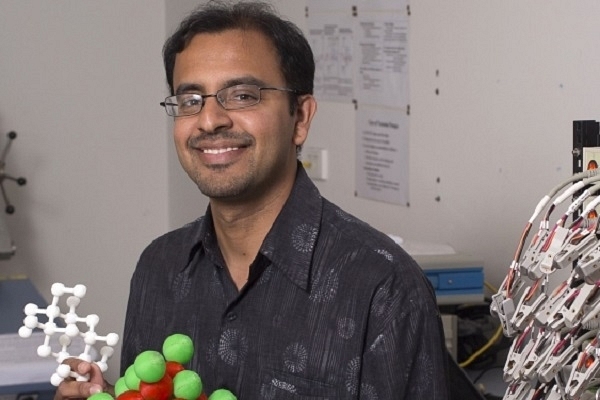Insta
Indian-Origin Researcher Dr Neeraj Sharma Wins Award For Work On Li-Ion Batteries, Next Gen Battery Systems

Dr Neeraj Sharma (Pic Via University Of New South Wales Website)
Dr Neeraj Sharma from the University of New South Wales (UNSW), Sydney -- considered one of the global leaders in the use of neutron and X-ray scattering methods to study materials for next-generation lithium-ion batteries - has won the 'Early Career Researcher of the Year (Physical Sciences)'.
NSW Premier Gladys Berejiklian honoured 35-year-old Dr Sharma, from the School of Chemistry at UNSW, with the award at the Government House in Sydney, the university said in a statement on Friday (1 November).
The award was given for his work in lithium-ion batteries found in electronic devices, electric vehicles and the grid, as well as next-generation battery systems such as sodium-ion batteries that will leave minimal environmental impact, and transition away from fossil fuels for energy generation and transportation.
"To develop the next generation of technologies, we need better performance at a lower environmental cost," said Dr Sharma.
"My work explores lithium-ion batteries - found in electronic devices, electric vehicles and the grid - as well as next-generation battery systems such as sodium-ion batteries. I find the study of sodium-ion batteries particularly fascinating and we have been developing new electrodes for these systems," he elaborated.
By focusing on electrochemical reactions in batteries, Dr Sharma aims to better understand how electrode composition, and structure at the atomic level, influence performance.
His research group is also exploring inherently safe solid-state batteries, energy-dense lithium-sulfur batteries, dual function solar batteries and methods for recycling.
"We can enable and enhance the uptake of electric vehicles, ensure batteries are recycled leaving minimal environmental impact, and transition away from fossil fuels for energy generation and transportation. There is significant opportunity to shape how we live into the future," Dr Sharma said.
“As researchers we are all working in our niche and there is potential, sometimes it is obvious as in batteries and at other times it is more subtle - but research really does change the world,” he added.
(With inputs from IANS)
Support Swarajya's 50 Ground Reports Project & Sponsor A Story
Every general election Swarajya does a 50 ground reports project.
Aimed only at serious readers and those who appreciate the nuances of political undercurrents, the project provides a sense of India's electoral landscape. As you know, these reports are produced after considerable investment of travel, time and effort on the ground.
This time too we've kicked off the project in style and have covered over 30 constituencies already. If you're someone who appreciates such work and have enjoyed our coverage please consider sponsoring a ground report for just Rs 2999 to Rs 19,999 - it goes a long way in helping us produce more quality reportage.
You can also back this project by becoming a subscriber for as little as Rs 999 - so do click on this links and choose a plan that suits you and back us.
Click below to contribute.
Latest